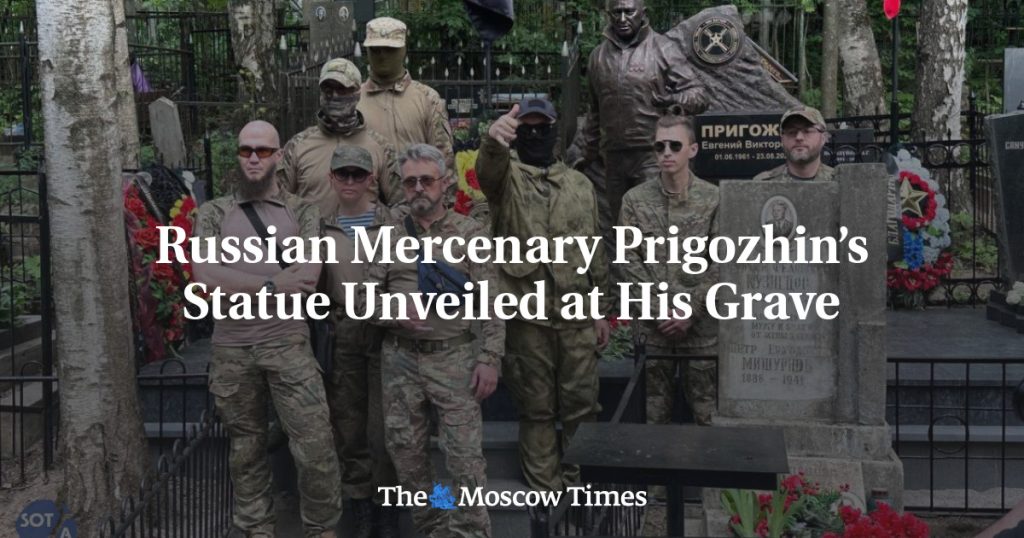Mourners and soldiers recently visited a new statue of Yevgeny Prigozhin in Saint Petersburg, commemorating the pro-Kremlin mercenary who led the Wagner private militia in Ukraine. Prigozhin played a significant role in capturing the city of Bakhmut during a months-long assault alongside Russian troops. Last June, he staged a mutiny, seizing Russian military command buildings in Rostov and attempting to march on Moscow to remove the country’s military leaders. Despite voicing concerns about corruption and mismanagement within the Russian Defense Ministry and General Staff, Prigozhin ultimately backed down and was labeled a traitor by President Vladimir Putin before dying in a plane crash two months later.
The unveiling of a bronze statue at Prigozhin’s grave in Porokhovskoye cemetery coincided with what would have been his 63rd birthday. The statue serves as a memorial to his controversial actions as a pro-Kremlin mercenary, sparking mixed reactions from mourners and soldiers. Prigozhin’s role in the Wagner private militia and his actions in Ukraine continue to be a point of discussion and debate within Russia and beyond. Despite his mutiny and subsequent death, Prigozhin’s legacy lives on through the statue erected in his honor.
The statue unveiling at Prigozhin’s grave highlights the complex and often controversial nature of his role in the military and the wider political landscape of Russia. The statue serves as a reminder of his actions and the impact they had on Russian military affairs and political dynamics. Mourners and soldiers paying their respects at the statue demonstrate the different perspectives and emotions surrounding Prigozhin’s legacy, with some viewing him as a hero and others as a traitor.
The statue of Prigozhin in Saint Petersburg symbolizes the conflicting narratives surrounding his life and actions, with some praising his efforts in the Wagner private militia while others condemn his mutiny against the Russian military leadership. The unveiling of the statue on what would have been his birthday adds another layer of significance to the memorial, connecting Prigozhin’s personal history to the broader context of Russian military and political history. The mixed reactions to the statue reflect the ongoing debates and discussions about Prigozhin’s legacy and the impact of his actions on the military and political landscape of Russia.
The unveiling of the bronze statue at Prigozhin’s grave in Saint Petersburg’s Porokhovskoye cemetery serves as a poignant reminder of his role as a pro-Kremlin mercenary and the complex legacy he left behind. Mourners and soldiers paying their respects at the statue show the diverse perspectives and emotions surrounding Prigozhin’s life and actions. While some see him as a hero for his efforts in the Wagner private militia, others view him as a traitor for his mutiny against the Russian military leadership. The statue represents a focal point for ongoing debates and discussions about the impact of Prigozhin’s actions on Russian military and political history.


